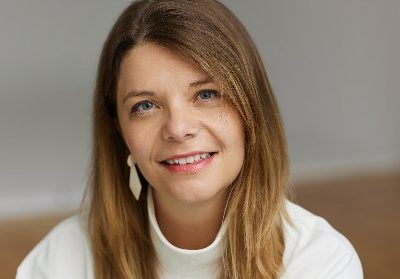It’s been eight years since Jessica Roda started studying the relatively secret world of female artists performing for ultra-Orthodox communities.
And while she wasn’t brought up that way–she comes from a Sephardi family with French and Spanish origins–her access came from teaching piano and the French language to families in Montreal who may have otherwise viewed her intentions with suspicion.
As a result, Roda found herself invited to lavish all-female theatre and dance productions held in religious schools. She discovered many were performed entirely in Yiddish.
The audience was also restricted to women and girls only—a policy that aligns with the prohibition in ultra-Orthodox communities of men hearing women singing, known as Kol Isha. It remains formally enforced due to the rules of modesty, known as tzniut.
But technology has transformed how the performers are reaching new audiences.
Roda’s research has included tracking the popularity of a new generation of frum celebrities, like American singers Bracha Jaffe and Devorah Schwartz, and Israel-based Chaya Kogan.
The honour system for men
They each have tens of thousands of followers on Instagram, and on other social media, which they turned to—especially during the pandemic, when concerts were held online.
“It’s a very complicated story of how it started, and who started first, but this is the idea: that this is in the hands of the men,” Roda explained in an interview with The CJN Daily. (These days, Roda is a professor of Jewish studies at Georgetown University in Washington, D.C.)
What that looks like, in practical terms, is the honour system: while men are never directly invited—and advertising for shows is clearly for women only—anyone can access the material.
“So those women acknowledge that they wanted to make it available for other girls, for other women, but this is the responsibility of men” not to watch, she said.
Still, the workaround isn’t welcomed by every haredi community.
The recent sold-out Jan. 15 concert by Jaffe and Kogan in London, England, did run afoul of some haredi schools and the Union of Orthodox Hebrew Congregations.
The rabbis ordered that school girls should not attend on the grounds that doing so would cause what they called “spiritual harm.”
Reports said the Hackney Empire Theatre’s 700 seats were filled despite the ban. The box office said it had no ticket cancellations or refund requests.
- Listen to Jessica Roda’s story on The CJN Daily podcast
What’s more accepted, Roda has discovered, is that rabbis will approve of women performing in public if it is for charitable or fundraising activities, or to earn a living, such as by providing singing lessons.
And yet, Roda has found cases where segregating the viewership doesn’t work, despite the artists’ best laid plans.
“I would say the irony is that even if it’s not accepted, they [the men] will sometimes participate or they will watch, they will listen and they will also attend those concerts.”
Staying ‘on the derech’, and not
Bracha Jaffe maintains that she’s glad to be living an ultra-Orthodox religious Jewish lifestyle and her songs and lyrics celebrate her choices. The mother of five works as a nurse, and comes from a cantorial family background in New York, but her recording sessions have involved male engineers or musicians.
Professor Roda is fascinated by the fact that the women’s dedication to their community remains intact, even as some performers also now use their platforms to initiate conversations about challenges facing haredi women—from equal pay to puberty to how to deal with nosy neighbours.
Watching these boundaries shift is a phenomenon that Roda has dubbed “cyberfrumenism.”
American comic Leah Forster used her social media accounts to support the struggle of agunot, the Hebrew term for Jewish women whose husbanleah fods will not grant them a divorce, leaving them in limbo for years, stigmatized and unable to remarry. Forster composed new lyrics to Amy Winehouse’s hit song “Rehab,” then performed it from her car with the hashtag #FreeChava.
“You tried to get a get (Jewish divorce decree by a rabbinical court) but your husband said ‘No no no’,” Forster sings.
While she came from the ultra-Orthodox world, Forster is now divorced—and married to a woman––for which she felt she had to leave her community behind. But she still practises a her own brand of Orthodox Judaism while modifying her performances when necessary, which includes covering her tattoos.
Montreal comedian Zeya
Comedian Zehavit Rosenbloom Vaknin of Montreal has about 25,000 followers on her Instagram, who laugh at relatable characters like Rebbetzin Gshmak—for which she uses an Instagram filter that distorts her face and blacks out one of her front teeth.
A recent post included a tongue-in-cheek scolding of some ultra-Orthodox mothers who take their daughters shopping for clothes, but then berate them loudly in the changing room when the dresses aren’t modest enough.
Roda notes that, unlike in New York, there are few cafes or restaurants in the Outremont neighbourhood of Montreal where women can put on shows. Some owners don’t want to risk offending the modesty police.
Instead, the artistic action takes place in private homes during the intermediate days of religious holidays like Passover or Sukkoth, or sometimes in synagogues, and at summer camps. Global connectivity has led to more demand for visiting performers from the United States and Israel.
Next year, Roda’s research into cyberfrumenism will be published in book form by New York University Press. The title is For Women And Girls Only. But she hopes her work gets everyone talking about another way in which Jewish observances are being redefined for the digital age.
